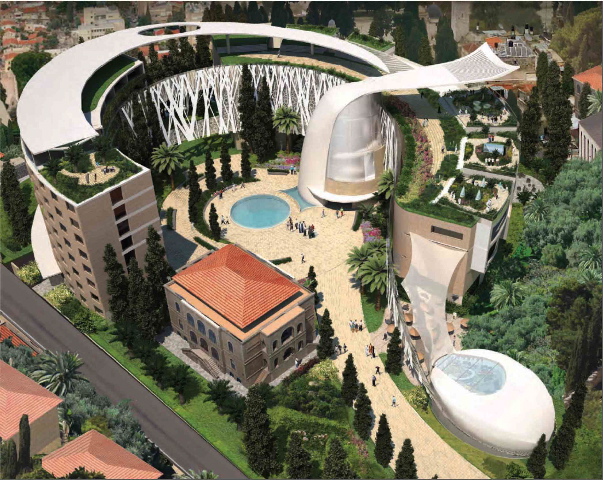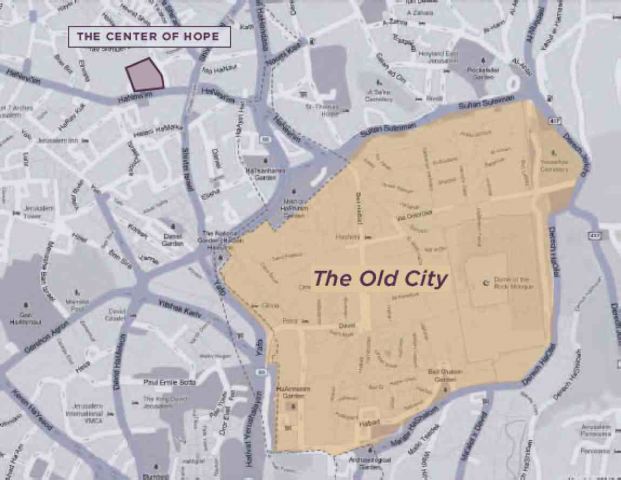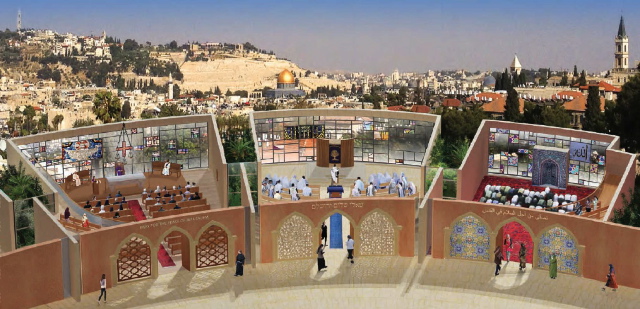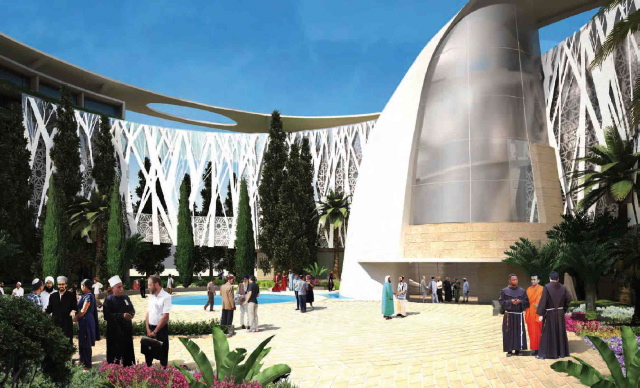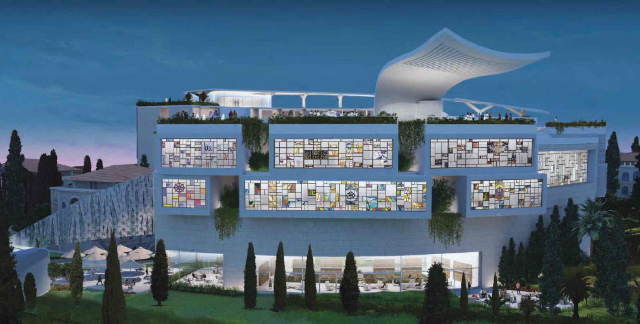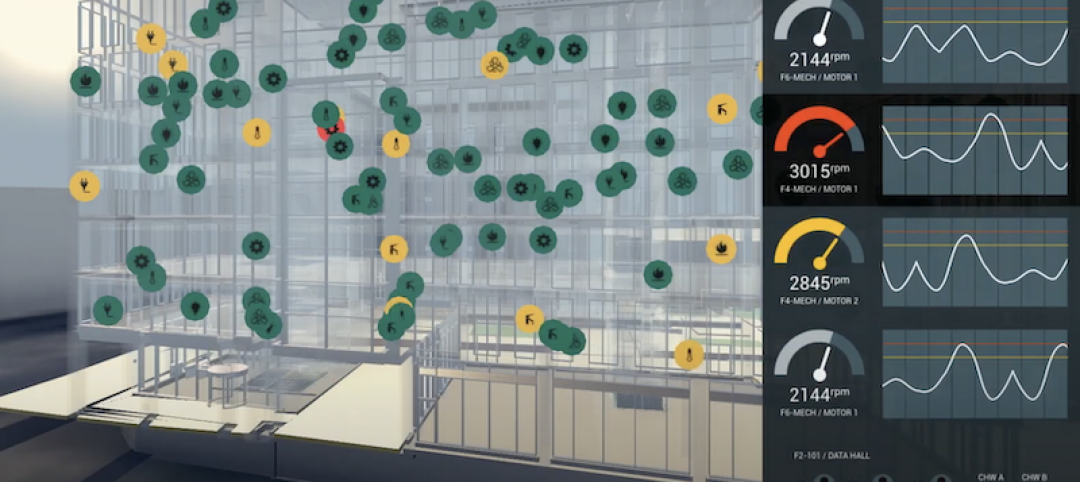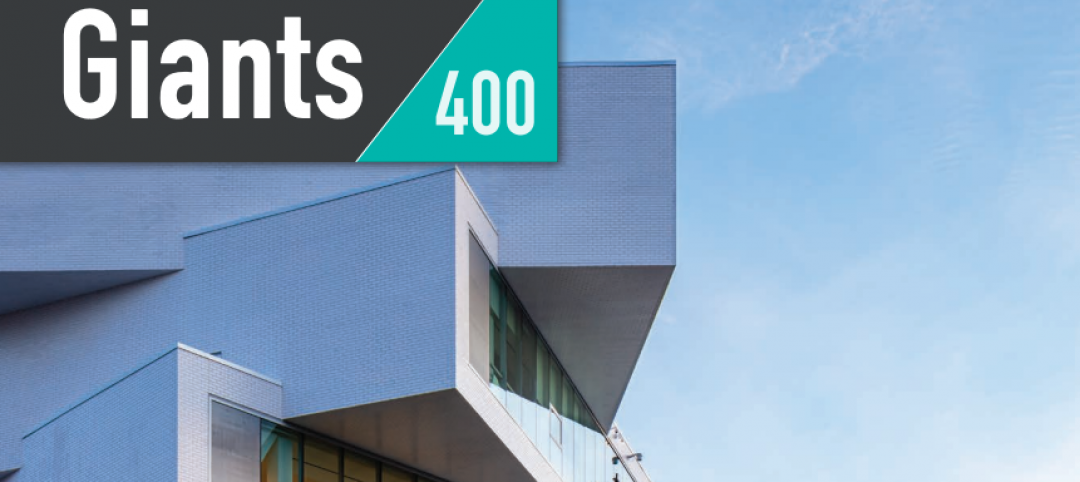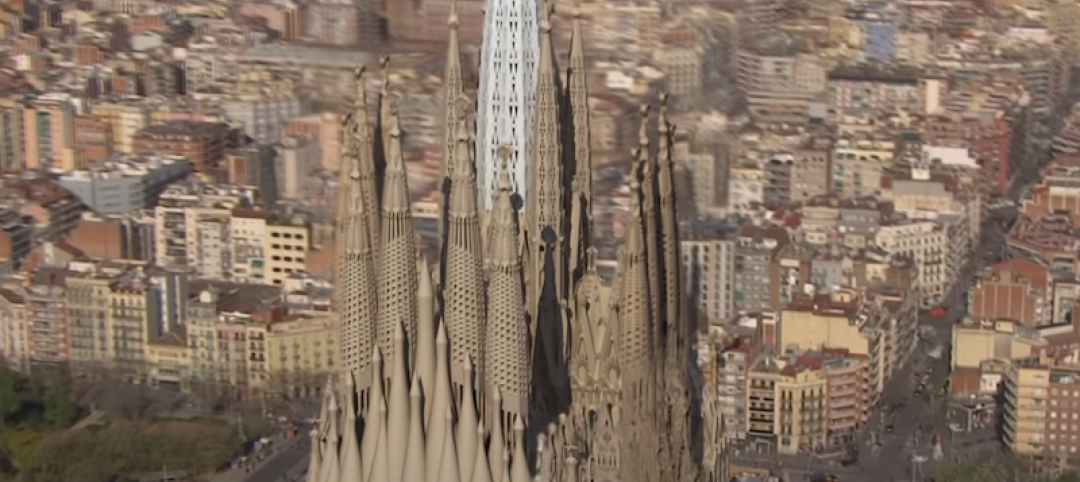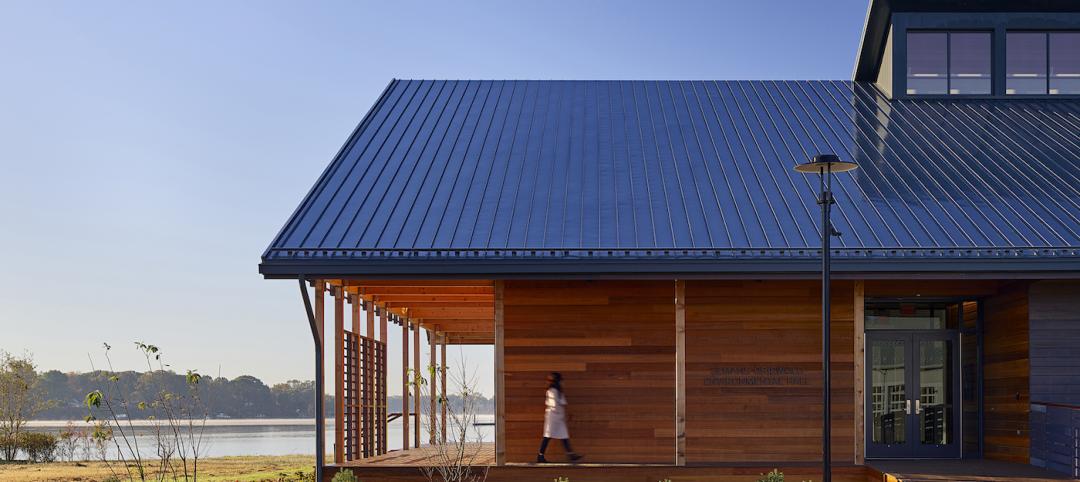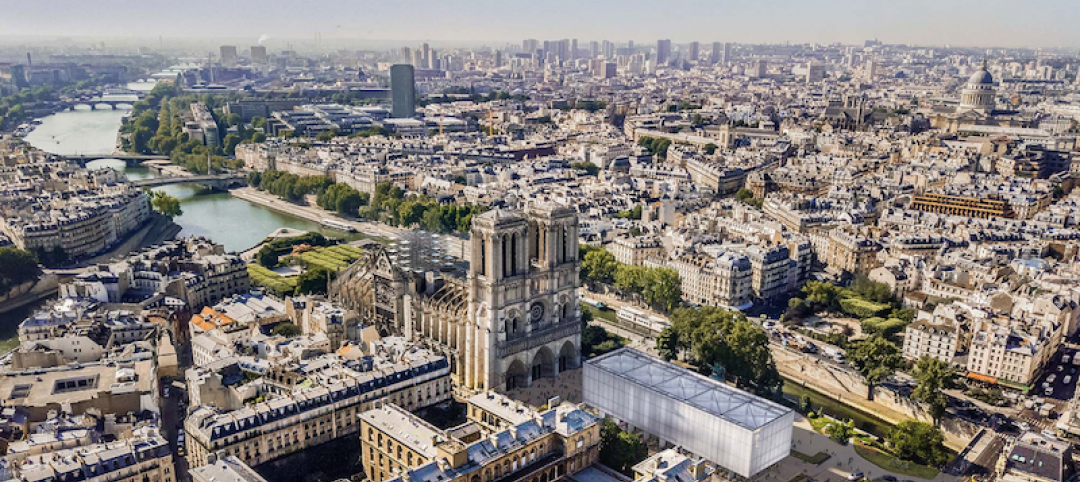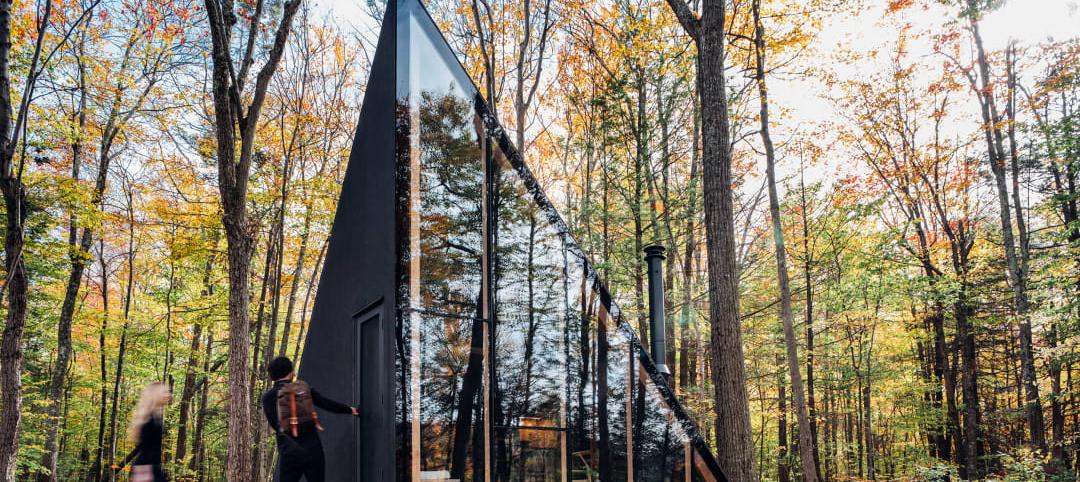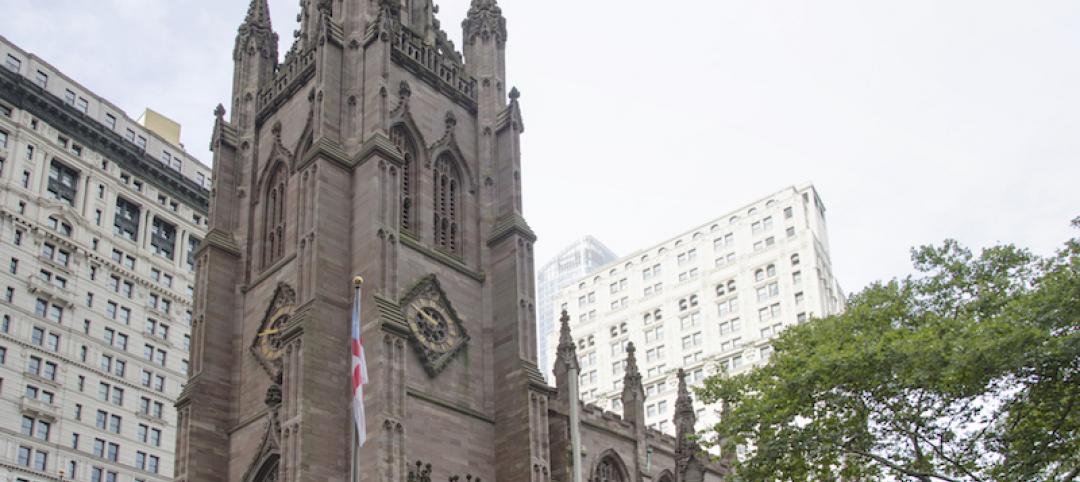The firm Lee H. Skolnick Architecture + Design Partnership has been selected to design the Center for HOPE, a new, 46,000-sf center in Jerusalem for religious education, cultural sharing and prayer among members of different faith traditions.
Like a United Nations for the religious world, the planned Center for HOPE is conceived by its backers as a place where people of all religions have a welcoming home and a place to help "bring about world-changing peace and harmony," according to The Elijah Interfaith Institute, the project's leader.
Support for the Center for HOPE has come from around the world from financial supporters as well as religious leaders including: the Dalai Lama; Cardinal Christoph Schönborn of Austria; Bhai Sahib Bhai Mohinder Singh of the U.K.; Grand Mufti Mustafa Ceric, of Bosnia; Chief Rabbi Jonathan Sacks of the U.K.; and Mata Amritanandamayi Devi of India.
According to Lee H. Skolnick, FAIA, the Center for Hope will be located on Prophets Street near Jerusalem's Old City, designed with symbolic meaning that reflects its redolent location.
"HOPE stands for 'House of Prayer and Education,' and the Center for HOPE experience is designed to unfold as a journey of peace and ascension," says Skolnick. "It is designed to provide beautiful prayer spaces, museum elements, art exhibition spaces, a library, a hospitality center, and study and lecture rooms for resident scholars."
The ribbonlike, sloping buildings curve around a verdant courtyard with reflecting pools, and feature green roofs and sustainable design elements. The mission of the new center, according to the Elijah Interfaith Institute, is as follows:
"Through prayer, education and cultural sharing, the Center of Hope seeks to bring about transformation in the lives of participants, increased understanding and appreciation between members of different faith traditions and a meaningful contribution to processes of peacemaking, community building and reconciliation between diverse faith communities in Jerusalem, thereby serving as a sign and model for religions and their possible relationships worldwide."
Related Stories
Digital Twin | May 24, 2021
Digital twin’s value propositions for the built environment, explained
Ernst & Young’s white paper makes its cases for the technology’s myriad benefits.
Market Data | Feb 24, 2021
2021 won’t be a growth year for construction spending, says latest JLL forecast
Predicts second-half improvement toward normalization next year.
Giants 400 | Dec 16, 2020
Download a PDF of all 2020 Giants 400 Rankings
This 70-page PDF features AEC firm rankings across 51 building sectors, disciplines, and specialty services.
Religious Facilities | Sep 17, 2020
Sagrada Familia completion date pushed back due to coronavirus
The project has been under construction since 1882.
Giants 400 | Aug 28, 2020
2020 Giants 400 Report: Ranking the nation's largest architecture, engineering, and construction firms
The 2020 Giants 400 Report features more than 130 rankings across 25 building sectors and specialty categories.
Religious Facilities | Mar 26, 2020
Cathedral design is inspired by a Bishop’s headpiece
RBB Architects designed the building.
Religious Facilities | Jul 30, 2019
Gensler’s temporary Pavillon Notre-Dame uses charred timber as its primary building material
What once destroyed Notre-Dame will now serve to make it stronger.
Architects | Jun 4, 2019
Big design, small budget: These are the best small projects for 2019
Bjarke Ingels Group's prototype mountainside cabin and Fieldwork's forest pedestrian bridges are among 12 projects honored by AIA's Small Project Practitioners group.
Religious Facilities | May 8, 2018
Manhattan’s historic Trinity Church Wall Street is getting its first facelift in 72 years
Improvements will include a new lighting and sound system, and a movable altar.
Reconstruction Awards | Nov 14, 2017
Hallowed ground: A Mormon temple rises from the ashes of a fire-ravaged historic tabernacle
Parts of the tabernacle’s exterior shell were the only things that survived the blaze.


